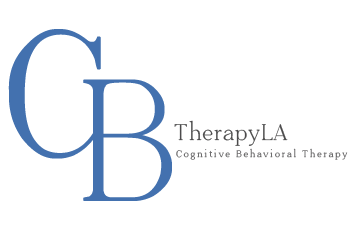Depression
“Although the world is full of suffering from depression, it is also full of the overcoming of it.”
– Helen Keller
Depression is a mental health disorder characterized by persistent feelings of sadness, hopelessness, and a lack of interest or pleasure in activities that were once enjoyable. It goes beyond occasional feelings of sadness and can significantly impact various aspects of a person’s life, including their thoughts, emotions, behaviors, and physical well-being.
In the DSM-5, depression is primarily diagnosed as Major Depressive Disorder (MDD). Here is how depression is defined within this diagnostic framework:
Major Depressive Disorder (MDD):
Major Depressive Disorder is a mental disorder characterized by the presence of at least five of the following symptoms during the same two-week period, representing a change from previous functioning. One of the symptoms must be either depressed mood or loss of interest or pleasure:
1. Depressed mood most of the day, nearly every day.
2. Diminished interest or pleasure in most activities (anhedonia).
3. Significant weight loss or gain, or a decrease or increase in appetite.
4. Insomnia or hypersomnia nearly every day.
5. Psychomotor agitation or retardation nearly every day.
6. Fatigue or loss of energy.
7. Feelings of worthlessness or excessive guilt.
8. Diminished ability to think or concentrate, or indecisiveness.
9. Recurrent thoughts of death, suicidal ideation, or a suicide attempt.
These symptoms must cause significant distress or impairment in social, occupational, or other important areas of functioning. Additionally, the symptoms cannot be better explained by other medical conditions, substance use, or bereavement.
It’s important to note that depression is a complex and nuanced condition, and its diagnosis should be made by a qualified mental health professional based on a thorough assessment of an individual’s symptoms and history. If you or someone you know is experiencing symptoms of depression, it’s recommended to seek professional help.
Impact of Depression:
Emotional Symptoms: Individuals with depression often experience a range of emotional symptoms, including overwhelming sadness, irritability, feelings of guilt or worthlessness, and a loss of interest in activities they once enjoyed.
Cognitive Symptoms: Depression can lead to cognitive difficulties such as difficulty concentrating, making decisions, or remembering things. Negative thought patterns and self-critical beliefs are also common.
Physical Symptoms: Depression can manifest physically as changes in sleep patterns (insomnia or excessive sleep), changes in appetite and weight, and low energy or fatigue. Physical aches and pains may also be present.
Social and Occupational Impact: Depression can strain relationships with family, friends, and colleagues due to a decreased ability to engage in social activities and fulfill responsibilities. Individuals may isolate themselves or have trouble maintaining their usual routines.
Suicidal Thoughts: In severe cases, depression can lead to suicidal thoughts or behaviors. It’s important to take such thoughts seriously and seek help if you or someone you know is experiencing them.
Evidence-Based Treatments for Depression:
Several evidence-based treatments have been shown to be effective in managing depression. The choice of treatment often depends on the severity of the depression, individual preferences, and other factors. Some common evidence-based treatments include:
Cognitive-Behavioral Therapy (CBT): CBT is a structured therapy that focuses on identifying and challenging negative thought patterns and behaviors that contribute to depression. It helps individuals develop healthier ways of thinking and coping.
Mindfulness-Based Cognitive Therapy (MBCT): MBCT combines cognitive therapy with mindfulness practices to help individuals become more aware of their thoughts and emotions, which can reduce the risk of relapse.
Behavioral Activation: This therapy helps individuals increase their engagement in positive and rewarding activities, even when they don’t feel like doing so. It aims to counteract the tendency to withdraw from enjoyable experiences.
Acceptance and Commitment Therapy (ACT): This is another therapeutic approach that can be effective for treating depression. ACT is based on the idea that struggling against or avoiding negative emotions and thoughts can actually contribute to psychological distress. Instead of trying to eliminate these feelings, ACT encourages individuals to accept them and focus on living a values-driven life.
It’s important to note that treatment outcomes can vary from person to person, and what works best for one individual might not be as effective for another. Seeking professional help from a mental health provider is crucial for accurate diagnosis and appropriate treatment planning tailored to the individual’s needs.
